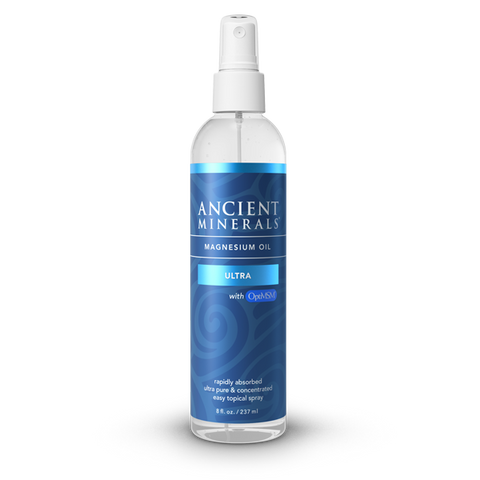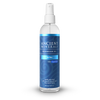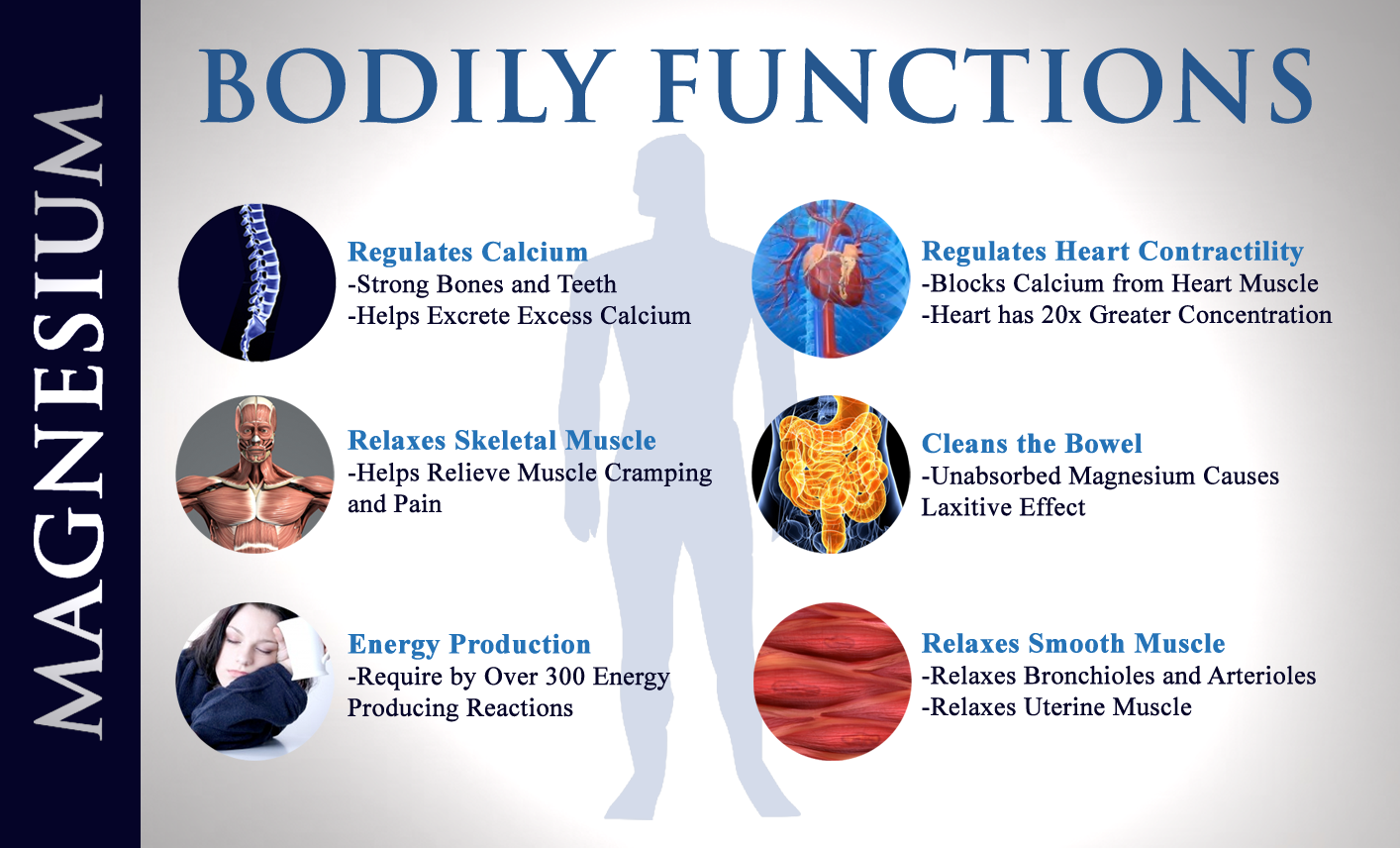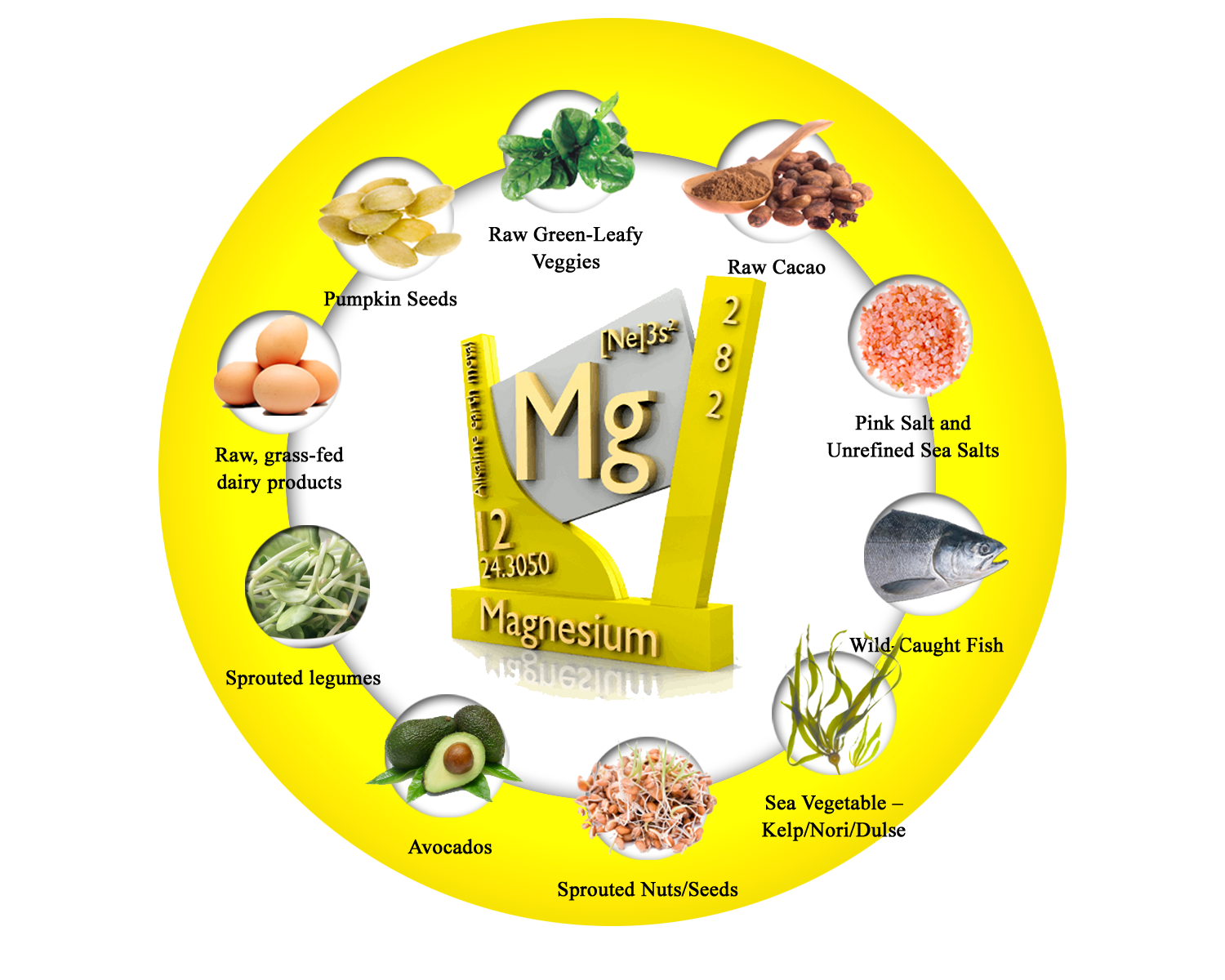
The topical magnesium with MSM is the best for applying to problem areas or as a general magnesium supplement. The combination of magnesium and MSM is powerful for controlling inflammation and strengthening damaged tissues. - Dr. Jockers
Let's discuss the key benefits of Magnesium Oil Ultra w/ MSM Topical Spray:
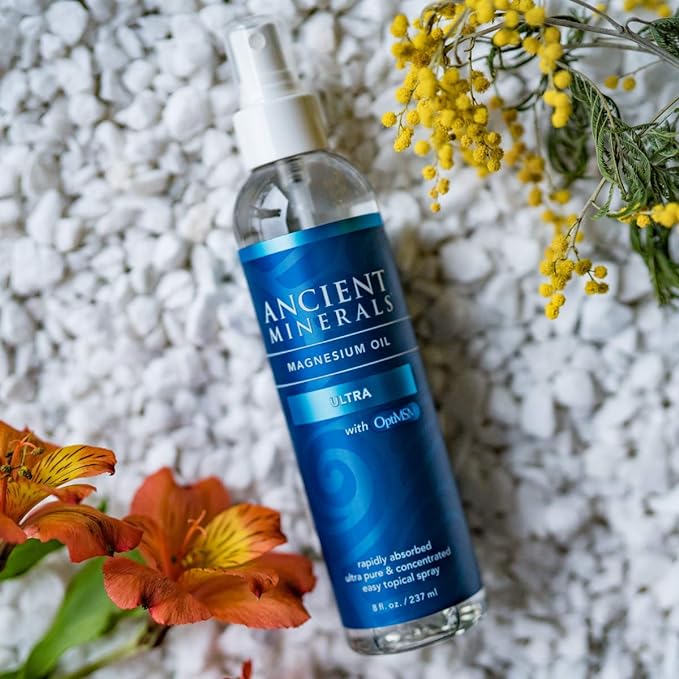
Why are people taking Ancient Minerals Magnesium Oil?
Read our customer reviews and you'll see why our clients agree these are...
Supplements You Can
TRUST
Magnesium Oil Ultra w/ MSM Topical Spray


What are the main ingredients?
• Water
• Genuine Zechstein magnesium chloride
(and natural trace minerals)
• Methylsulfonylmethane (MSM
What are the Magnesium deficiency rates?
Research has shown that 68% of individuals in the US do not consume the daily recommended amount of dietary magnesium and 19% do not even consume half of the RDA levels (310-420mg daily) (3). Most researchers believe this RDA level is far too low and if it was raised to where it should be we would see that roughly 80% of Americans are consuming insufficient quantities (4). Magnesium is a basic element of life much like water and air. We need a lot of magnesium, roughly 1000 mgs/day for a healthy active individual to keep up with the demands of the body. Magnesium is to the body like oil is to a car’s engine and if we are deficient problems will arise.

How do Calcium: Magnesium ratios affect the body?
Our current diet is rich in calcium but insufficient in magnesium. Our ancient ancestors had a a diet that was close to 1:1 whereas our present-day diets are more like 5:1 and up to 15:1. Having roughly ten times more calcium than magnesium is a serious problem (5).
This elevated calcium-to-magnesium ratio is a major player in conditions such as mitral valve prolapse, migraines, attention deficit disorder, autism, fibromyalgia, anxiety, asthma, and allergies. Wherever there is elevated calcium and insufficient magnesium inside of cells the effects are muscle contractions, spasms, twitches, and even convulsions (6).
How does Magnesium affect detoxification?
Without sufficient magnesium, the body struggles to make and utilize protein and enzymes. It is also unable to properly methylate and detoxify and/or process and utilize anti-oxidants like vitamins C and E.
Magnesium is extremely critical for proper detoxification processes. As our world has gotten increasingly more toxic, our need for magnesium has increased. Meanwhile, the nutrition of our modern food has increasingly been diminished. This is due to overcropping, poor composting, and pesticides/herbicide chemical residue which reduces the nutritional quality of the soil and produce.

What are the best food sources of Magnesium?
The densest sources of bioavailable magnesium are in the following foods
How do blood sugar imbalances affect Magnesium deficiencies?
Many individuals are consuming a whole-food-based diet that is rich in magnesium but they are still dealing with magnesium deficiency syndrome. This is due to a diet that contains too many carbohydrates which leads to blood sugar instability.
When we consume a large amount of carbohydrates our body must produce and secrete large amounts of insulin into the bloodstream. Magnesium is a key part of the insulin pathways and insulin is what helps funnel magnesium into the cells of the body. When we develop insulin resistance we are unable to utilize magnesium effectively.
A low-carb, high-good fat, and moderate protein diet rich in the bioavailable magnesium sources listed above is a great protective step to prevent and/or alleviate a magnesium deficiency.

Why is Magnesium supplementation important?
There are many different forms of magnesium supplements. Many use capsulated products but research has indicated that the transdermal approach is the best. Magnesium is absorbed through the skin, giving transdermal magnesium therapy many of the same benefits as some of the much more expensive transdermal patches available today.
Magnesium oil is a transdermal magnesium supplement, designed to deliver magnesium through the skin, bypassing the gastrointestinal tract for convenient, rapid absorption into the cells.
What is Transdermal Magnesium?
- Is an easy and convenient, “do it yourself” method of magnesium supplementation
- Avoids problems of gastrointestinal irritation and diarrhea, by bypassing the digestive system entirely
- Passes directly into the tissues via the skin, where it is quickly transported to cells throughout the body
What is Magnesium Oil?
Magnesium oil, liquid magnesium, and magnesium spray — all names that refer to a concentrated solution of magnesium chloride applied to the skin — are the new darlings of many holistic health professionals. Dr. Carolyn Dean, M.D., N.D., describes in her book, the unique benefits of topical magnesium chloride oil:
"A very exciting addition to the magnesium family is a product loosely referred to as magnesium oil. It's not actually an oil at all, but a supersaturated solution of magnesium chloride. Magnesium oil can be sprayed or rubbed on the body and is readily absorbed through the skin."
It helps to greatly increase the amount of magnesium in body tissues and overcomes the problems that some people have with loose stools when they try to take enough magnesium to meet their needs. This can be especially important in cases of severe magnesium deficiency that were only treatable with IV magnesium before magnesium oil came along.”
What are the types of Magnesium?
There are several different forms of magnesium that occur in nature. Each of these forms has varying degrees of efficiency in human biochemistry. The most common supplemental form is magnesium oxide, which has been shown to have as low as a 4% absorption rate (10). Magnesium oxide is great for improving bowel tone but does not address magnesium deficiencies.
According to Dr. Carolyn Dean, M.D., N.D., author of The Magnesium Miracle and expert on magnesium therapy, magnesium chloride, and other inorganic magnesium salts occur as metal-ligand complexes, substances bound around a single, central metal atom, in this case, magnesium. These metal-ligand compounds may each be assigned a “stability constant”, which defines their relative ability to dissociate into ionic form.
Stability constants range from values less than one to values under twenty. With regards to forms of magnesium supplements, the closer the stability constant is to zero, the more bioavailable the supplement. Lower stability constants represent soluble complexes, more easily broken down into ionic forms for bioavailability. This is important, as we assimilate magnesium not as the magnesium chloride compound, but rather as free magnesium and chloride ions.
What is the importance of Magnesium in Hydrochloric Acid in the stomach?
As to the success of magnesium chloride for health via oral supplementation, the benefits are admirable. Many researchers advocate magnesium chloride as the most effective form of dietary supplementation, in part due to the vital role that chloride has in the production of hydrochloric acid in the stomach.
Magnesium plays a vital role in the production of hydrochloric acid in the stomach.
Some people simply do not produce enough hydrochloric acid (HCl), which can result in several health issues related to metabolism and nutrient absorption. These deficiencies can be due to various disorders that affect the stomach, or simply due to individual differences or reasons unknown. As we age, production of HCl in the stomach declines, often dramatically, and is nearly always left undiagnosed.
Magnesium chloride’s use as a magnesium supplement has the added benefit of helping to reduce many potential problems that could arise from steadily declining secretions of gastric acid in the stomach.
What can inadequate HydroChloric Acid lead to?
- Mal-Absorption of Vitamins and Minerals
- A Failure in Proper Digestion & Irritation of the Gut Lining
- An Increased Susceptibility to Unwanted Bacteria, Viruses & Yeasts Passing Through the Gut
These advantages come from the extra chloride found in magnesium chloride, enough to increase the production of gastric acid, thereby enhancing absorption and assimilation of magnesium itself, and improving overall digestive efficiency — creating an ideal environment for the assimilation of critical micronutrients important to health, especially as we age.

What is Transdermal Magnesium Chloride Oil?
A small study conducted by Dr. Norman Shealy, M.D., founder of the American Holistic Medical Association, provides documented research on the effect of topical magnesium chloride on blood chemistry. Dr. Shealy compared intracellular magnesium levels of participants before and after a period of daily application of topical magnesium, via magnesium baths and spray application of magnesium chloride oil.
With 75% of participants showing marked improvement, Dr. Shealy concluded that the unique properties of supersaturated magnesium chloride allow it to be absorbed effectively into the skin, raising intracellular magnesium levels in the majority of individuals (11)
Magnesium Chloride is recognized by many medical professionals as the “Master Magnesium Compound” for both dietary and topical uses, due to its high potency and efficient action.’ Your magnesium oil should be applied topically with a fine mist spray bottle. Simply dispense 1-3 sprays into a cupped hand, then rub into the skin thoroughly. Repeat to cover arms, legs, and any areas needing special attention.
Why choose Ancient Minerals Magnesium?
Ancient Minerals takes its name from its ancient and pristine source, the ancient Zechstein Sea, a geological formation in Northern Europe from the Late Permian Era. For 250 million years Genuine Zechstein™ magnesium salt has been protected deep within the Zechstein Seabed at a depth of 1600-2000 meters beneath the earth’s crust, isolated from the impurities of the modern world.
While it is possible to extract magnesium chloride from various ocean water and inland brine sources, it’s important to question the purity of any product derived from seawater that has been exposed to industrial pollutants — similar to concerns regarding the mercury content of fish.
Our magnesium oil utilizes only Genuine Zechstein™ magnesium chloride, the purest and most pristine source of natural magnesium chloride in the world, extracted in a preserved state from an ancient time millions of years before our modern age. There are no added ingredients except those found naturally occurring in the deep underground deposits of this pristine source.
What are the 2 major Magnesium types?
For those who have chronic or acute pain, I recommend the Magnesium with MSM. MSM is a powerful anti-inflammatory that you can read about here.
For those who struggle with sleeping, whether it is falling asleep or staying asleep, I recommend the Magnesium Goodnight which has melatonin in it for deeper and more fulfilling sleep cycles.

What is the recommended dosage and application?
Apply to as much of the body as possible for the most efficient absorption of magnesium. Avoid contact with eyes and other sensitive areas. Rub well into the skin. Rinse or wipe off after 20 minutes and moisturize. It is normal for some individuals to experience a gentle tingling sensation on the skin during the first several applications.
Magnesium is present in all cells of the body and is involved in over 300 enzymatic processes, including energy production. Magnesium is essential for maintaining normal bone density, normal cardiac rhythmicity, normal pulmonary function, and normal blood glucose regulation. Magnesium is one of the most common worldwide deficiencies and it plays a role in most of the common health struggles people face every day.
Most doctors are not trained to detect magnesium deficiencies. Magnesium deficiency is often misdiagnosed because it does not show up in blood tests as only 1% of the body's magnesium is stored in the blood (1).
Dr. Norman Shealy's, M.D., Ph.D. is an American neurosurgeon and a pioneer in pain medicine says, "Every known illness is associated with a magnesium deficiency,” and that, "magnesium is the most critical mineral required for electrical stability of every cell in the body. A magnesium deficiency may be responsible for more diseases than any other nutrient. (2)"
When introducing a new supplement, we recommend taking the lowest dose for 2-3 days. As tolerated, increase the dose until you have reached the recommended normal or advanced guidelines. Reduce to a tolerable dosage if adverse effects occur.
Warning: For external use only. Avoid direct contact with eyes and other sensitive areas. Keep out of the reach of children.
Select Your Options & Add to Cart
† These statements have not been evaluated by the Food and Drug Administration.
This product is not intended to diagnose, treat, cure or prevent any disease.


